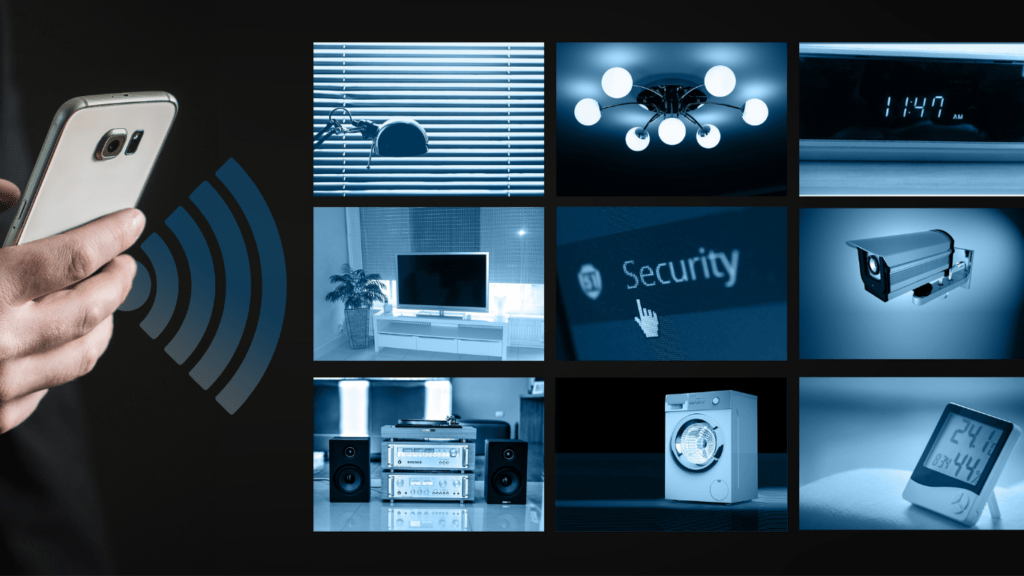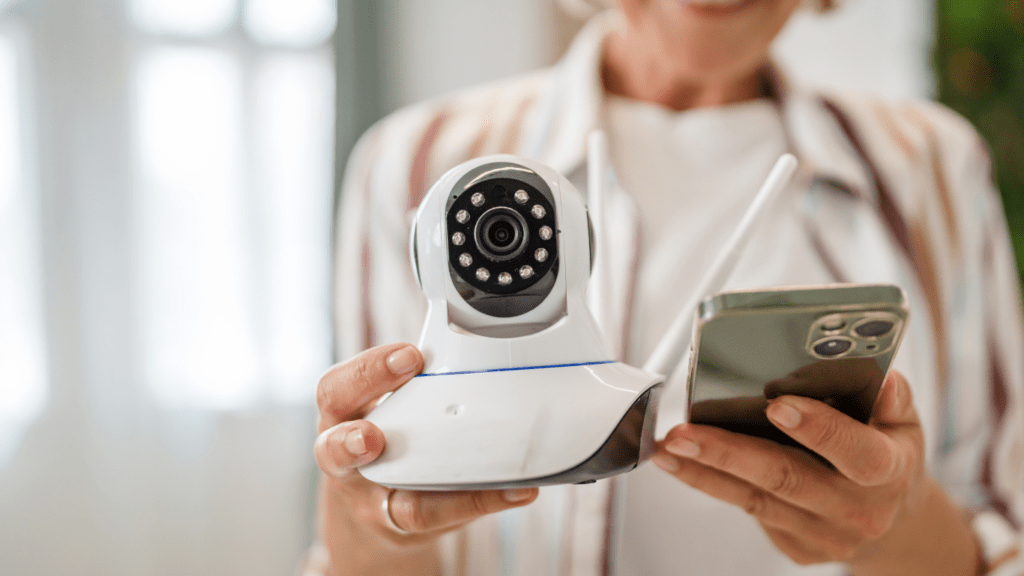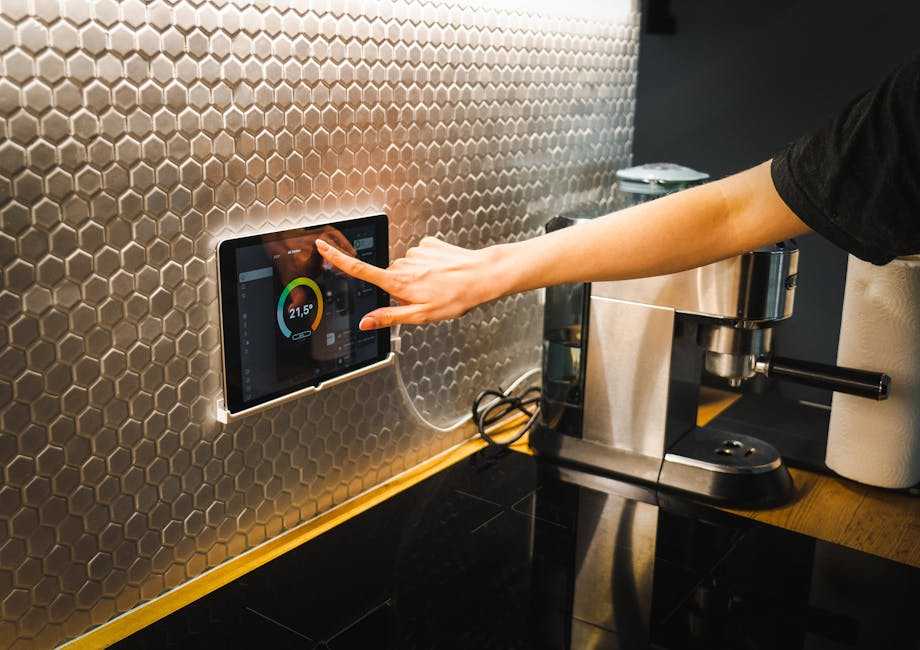Smart Home Innovations On The Horizon
Imagine a home that’s smarter, more intuitive, and seamlessly integrated with our lifestyles. Several groundbreaking innovations are set to redefine our living spaces.
Enhanced Connectivity
Enhanced connectivity connects multiple devices, creating a unified smart home ecosystem. Wi-Fi 6 and 5G networks ensure faster, more reliable internet connections, enhancing the performance of smart devices. Mesh networks extend internet coverage throughout the home, eliminating dead zones. Example: A smart thermostat communicating with smart blinds to optimize energy efficiency relies on robust connectivity.
Artificial Intelligence Integration
Integrating AI transforms smart homes into proactive environments. Home assistants like:
- Amazon Alexa
- Google Assistant
- Apple Siri
use machine learning to understand and predict user preferences. AI enhances security systems by analyzing patterns and detecting anomalies in real-time. Example: AI cameras recognize familiar faces and send alerts for unknown individuals, improving home security. Smart appliances, including fridges and washing machines, utilize AI to optimize functionality and reduce energy consumption.
Emerging Smart Home Devices
Exploring new smart home devices reveals ground-breaking innovations aimed at transforming everyday living. These advancements emphasize security and energy efficiency, enhancing convenience and sustainability.
Advanced Security Systems
Advanced security systems are incorporating AI and machine learning for enhanced protection. AI cameras can now recognize faces, distinguishing family members from strangers. Smart locks are designed to integrate with voice assistants, offering hands-free control. For instance, these locks can grant access to visitors while you’re away. Motion sensors equipped with AI detect unusual activity and send notifications in real-time. The merging of these technologies creates a multi-layered security ecosystem, ensuring homes are safer than ever.
Energy Management Solutions
Next-gen energy management solutions focus on optimizing energy use and reducing waste. Smart thermostats, integrated with machine learning, learn household habits and adjust temperatures accordingly. These devices can collaborate with smart blinds to maintain energy efficiency. Energy-monitoring outlets track consumption and recommend ways to cut down usage. For instance, smart appliances may operate during off-peak hours to save costs. Solar panel systems connected to home energy networks enable users to monitor and manage power production and consumption efficiently.
The Role Of 5G In Smart Homes

5G technology will redefine smart homes by enhancing speed, connectivity, and reliability. The impact of these improvements can be seen in various smart home aspects.
Faster Data Transmission
5G enables data transmission speeds up to 100 times faster than 4G, allowing smart devices to communicate and respond almost instantly. Streaming 4K videos, making video calls, and using high-bandwidth applications become seamless. For example, a smart security camera system can instantly upload high-resolution footage to the cloud, providing real-time monitoring and alerts. This speed also facilitates quicker updates and syncs across devices, ensuring that a smart home runs efficiently without lag.
Improved Device Interconnectivity
- The enhanced network capabilities of 5G support more connected devices simultaneously.
- In smart homes, this means seamless communication between multiple devices, such as smart speakers, lights, and appliances.
- A voice command to a smart assistant can trigger a series of actions involving different devices, like lowering the blinds, adjusting the thermostat, and dimming the lights in one coordinated effort.
- Improved interconnectivity also allows for more complex home automation scenarios, such as smart home ecosystems where various sensors and controllers work together to optimize energy use and enhance security.
Privacy And Security Concerns
As smart homes integrate more advanced technologies, privacy and security concerns become increasingly critical. Addressing these concerns ensures that smart homes remain safe and trustworthy environments.
Data Protection Measures
Robust data protection measures are essential for securing smart home systems. Enhanced encryption standards ensure data transmitted between devices remains inaccessible to unauthorized users. Regular firmware updates address vulnerabilities, closing security gaps in the system.
Two-factor authentication (2FA) adds an extra layer of protection. Users must verify their identity twice, typically with a password and a code sent to a mobile device. Biometric authentication, like fingerprint and facial recognition, provides even more security.
Ethical Considerations
Ethical considerations in smart home technology focus on user consent and data usage transparency. Ensuring users know what data is collected and how it’s used builds trust. Clear, straightforward privacy policies help users make informed decisions.
Manufacturers bear responsibility for ethical AI deployment. AI should function within defined ethical boundaries, avoiding biases in security systems and other applications. Compliance with regulations like the General Data Protection Regulation (GDPR) helps maintain ethical standards, protecting user data and privacy.
Impact On Daily Life
Smart home technology is revolutionizing our daily routines, making life more convenient and efficient. By integrating advanced tech, homes adapt seamlessly to our needs.
Simplifying Household Tasks
Smart home devices are streamlining everyday chores. For example, automated vacuum cleaners navigate and clean floors independently, while connected kitchen appliances manage cooking times and temperatures for perfect results.
Voice-assistant integrations enable control of multiple devices using simple commands, from adjusting lights to setting alarms. Automated grocery lists, generated by smart refrigerators, track inventory and suggest items based on usage patterns.
Increasing Home Efficiency
Energy-efficient smart devices optimize resource consumption. Smart thermostats learn household schedules and adjust settings to save energy, working in tandem with smart blinds to regulate indoor temperatures.
Energy-monitoring outlets provide insights into power usage, suggesting ways to reduce waste. Solar panels integrated with home energy networks allow efficient tracking and management of power generation and consumption. AI-driven home assistants offer custom recommendations for improving energy efficiency, ensuring a sustainable living environment.



 Smart Home Technology Consultant
Meagan Kanedooray serves as Luxe House Maker’s smart home technology consultant, with extensive experience in integrating advanced tech into luxury homes. Specializing in home automation, security systems, and energy-efficient solutions, Meagan helps readers transform their living spaces into seamless, tech-enabled environments. Her expertise in cutting-edge technologies ensures that Luxe House Maker’s audience stays informed about the latest innovations that enhance convenience, safety, and sustainability in luxury living. Meagan’s deep understanding of smart home trends makes her an invaluable resource for those looking to elevate their homes with the latest advancements in technology.
Smart Home Technology Consultant
Meagan Kanedooray serves as Luxe House Maker’s smart home technology consultant, with extensive experience in integrating advanced tech into luxury homes. Specializing in home automation, security systems, and energy-efficient solutions, Meagan helps readers transform their living spaces into seamless, tech-enabled environments. Her expertise in cutting-edge technologies ensures that Luxe House Maker’s audience stays informed about the latest innovations that enhance convenience, safety, and sustainability in luxury living. Meagan’s deep understanding of smart home trends makes her an invaluable resource for those looking to elevate their homes with the latest advancements in technology.
